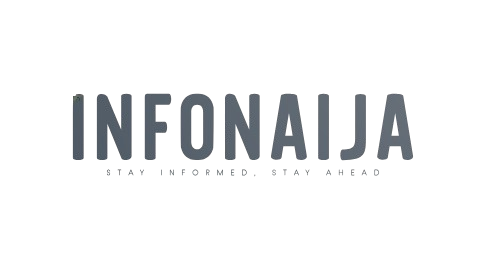Effective Date: [2-05-2025]
Welcome to Infonaija.com.ng. Your privacy is critically important to us. This Privacy Policy explains how we collect, use, and protect your personal information when you visit and interact with our website.
By using our website, you agree to the collection and use of information in accordance with this policy.
Contents
1. Information We Collect
We may collect the following types of information:
a. Personal Information
This may include:
- Name
- Email address
- Any other information voluntarily submitted via contact forms, newsletter subscriptions, or comments
b. Non-Personal Information
This includes technical data such as:
- IP address
- Browser type and version
- Pages visited
- Time and date of visit
- Referring website
- Device type
This data is collected automatically through cookies and other tracking technologies.
2. Use of Information
We use the information we collect to:
- Provide and maintain our website
- Improve user experience and site performance
- Send updates or newsletters (if opted-in)
- Respond to inquiries and comments
- Monitor and analyze website traffic
- Comply with legal obligations
3. Cookies and Google AdSense
Infonaija.com.ng uses cookies to:
- Understand user behavior and preferences
- Deliver relevant ads through Google AdSense
Google uses cookies, including DART cookies, to serve ads based on users’ prior visits to this site or other websites. Users may opt out of personalized advertising by visiting Google Ads Settings.
To learn more about how Google uses data, visit:
https://policies.google.com/technologies/partner-sites
You can disable cookies in your browser settings, although this may affect how the site functions.
4. Third-Party Services
We may use third-party services such as:
- Google Analytics
- Google AdSense
- Email marketing platforms (if applicable)
These services may collect, monitor, and analyze data as described in their respective privacy policies.
We do not sell, trade, or transfer your personally identifiable information to outside parties without your consent, except where required by law.
5. Data Security
We implement reasonable security measures to protect your personal information. However, no method of transmission over the internet or electronic storage is 100% secure.
6. Your Data Protection Rights
Depending on your location (e.g., EU/UK), you may have rights including:
- Access to your data
- Correction of inaccurate data
- Erasure of your data
- Objection to processing
- Data portability
To exercise any of these rights, please contact us using the information below.
7. Children’s Privacy
Our website is not directed toward children under the age of 13. We do not knowingly collect personal information from children. If we become aware that a child has provided us with personal data, we will take steps to delete such information.
8. Changes to This Privacy Policy
We may update this Privacy Policy from time to time. Any changes will be posted on this page with a revised “Effective Date” at the top. We recommend checking this page regularly to stay informed.
9. Contact Us
If you have any questions about this Privacy Policy, or you want to make a data request, please contact us at:
Email: [[email protected]]
Website: https://www.Infonaija.com.ng
